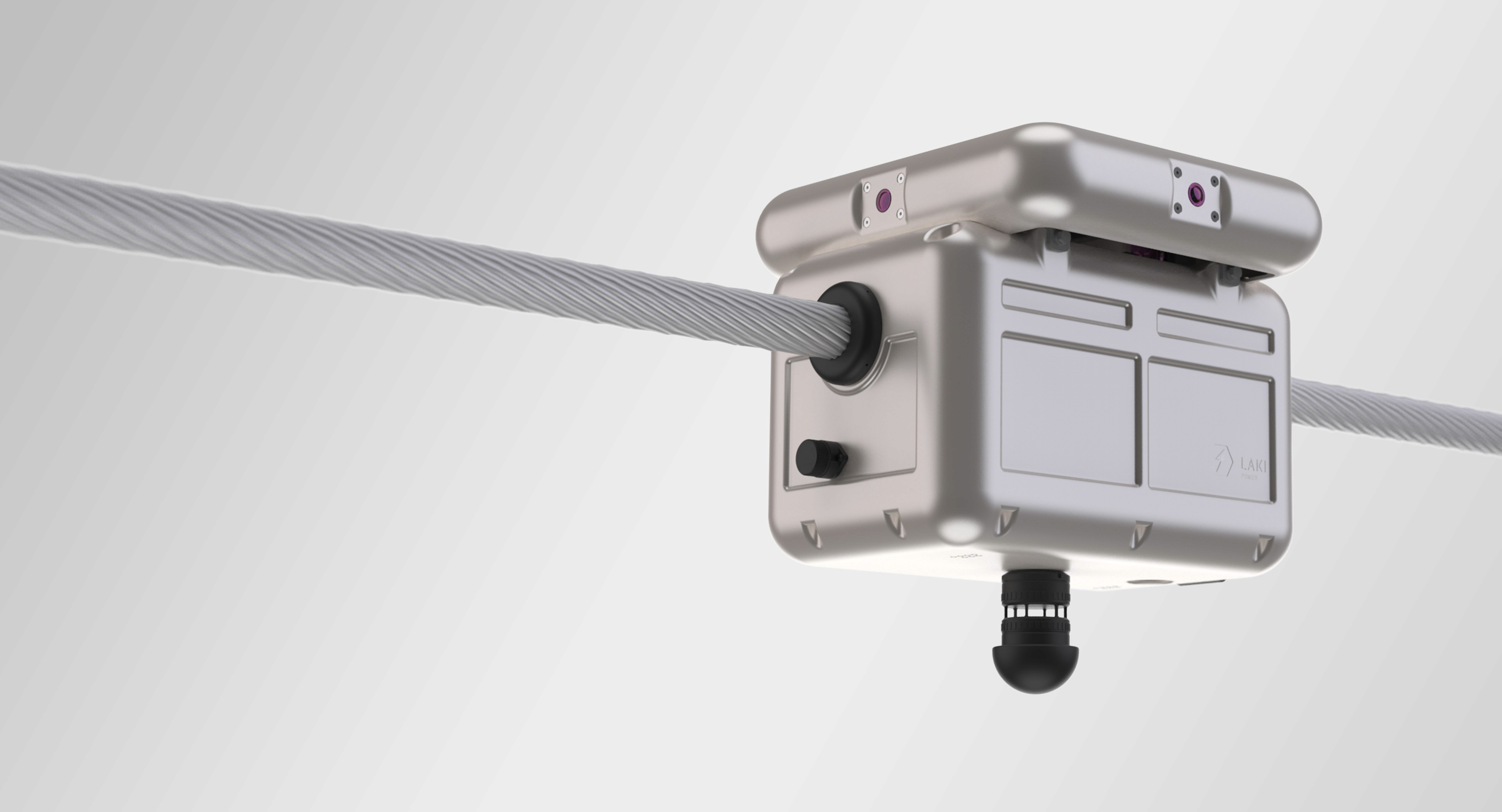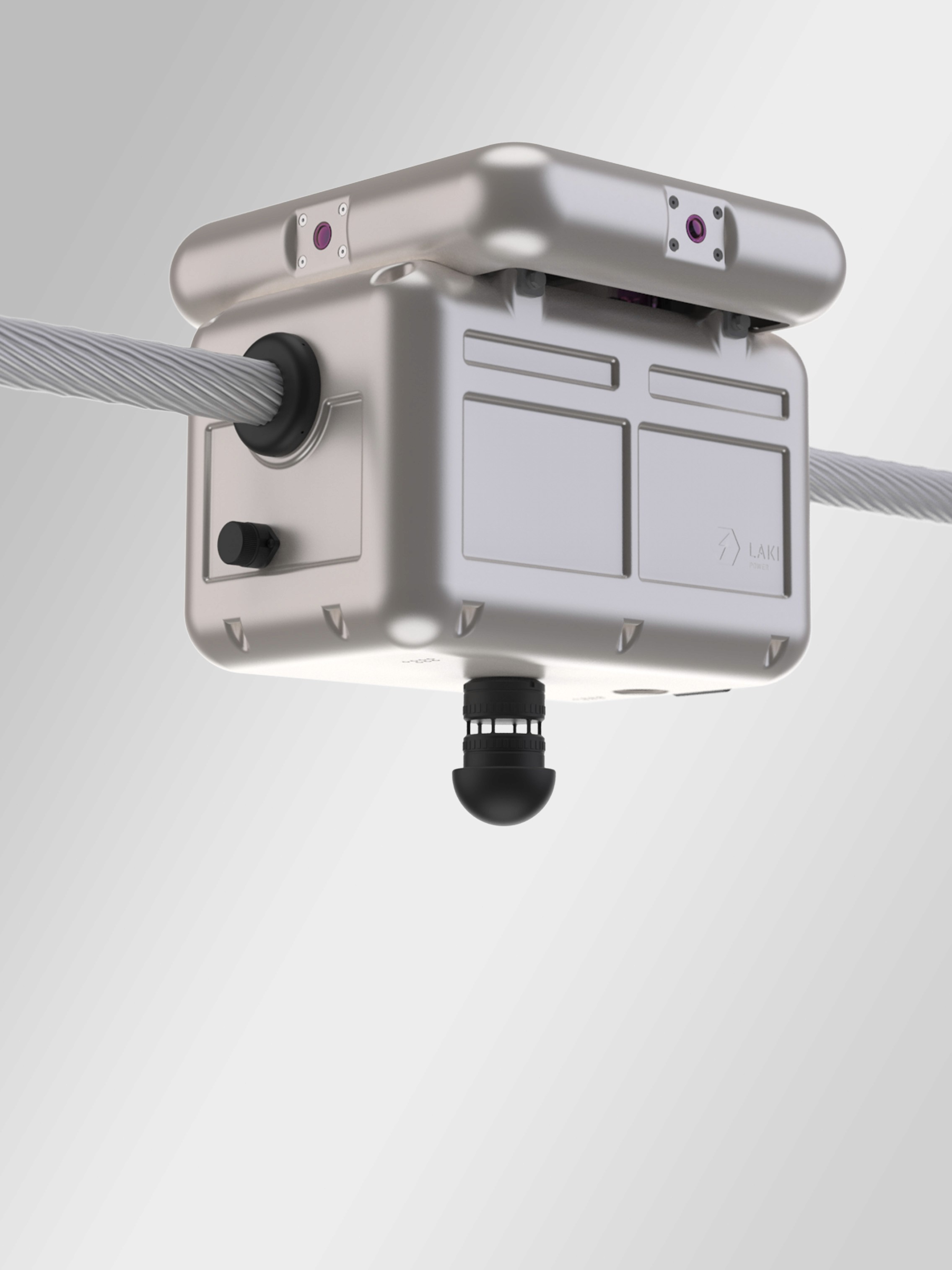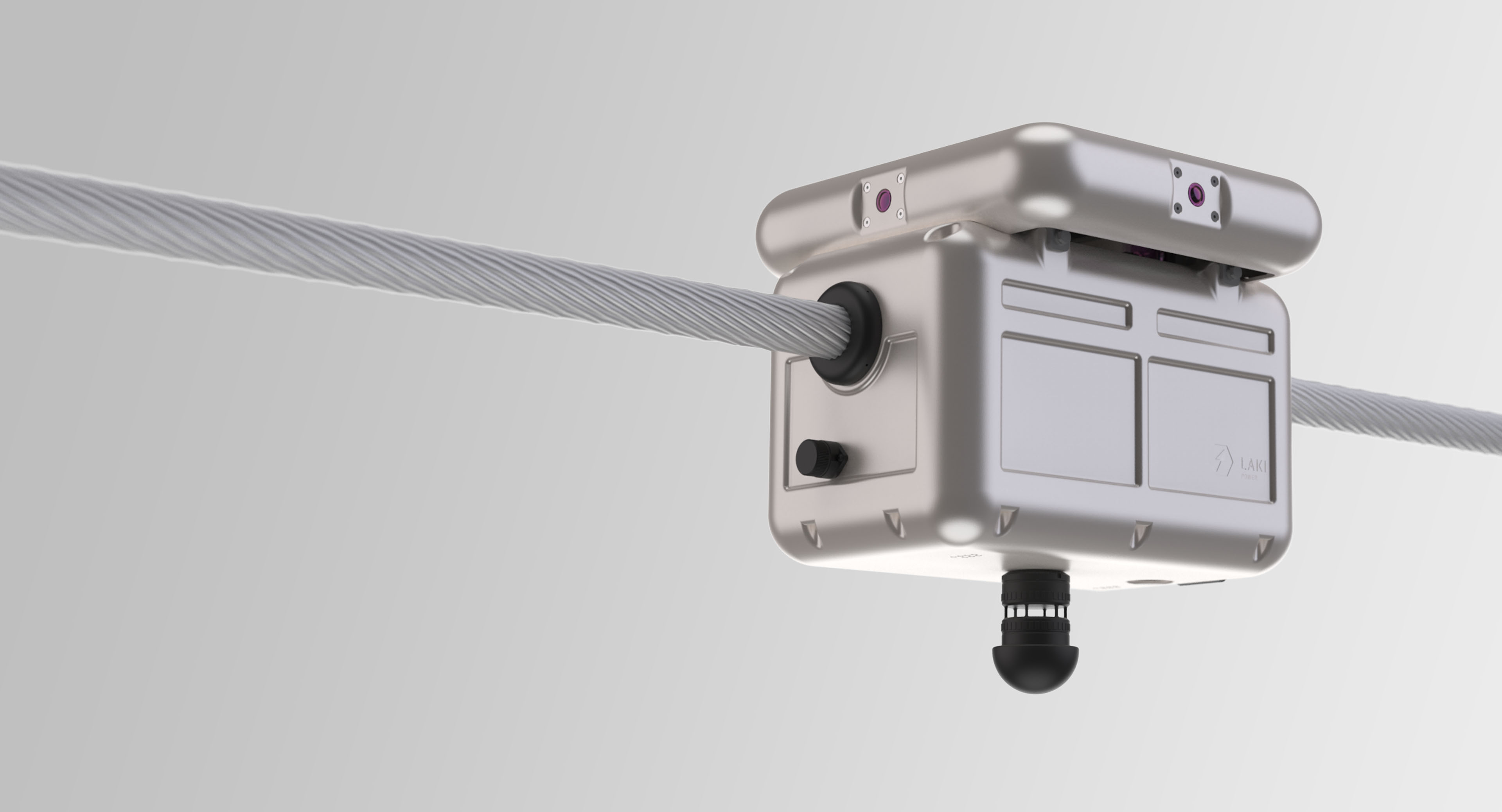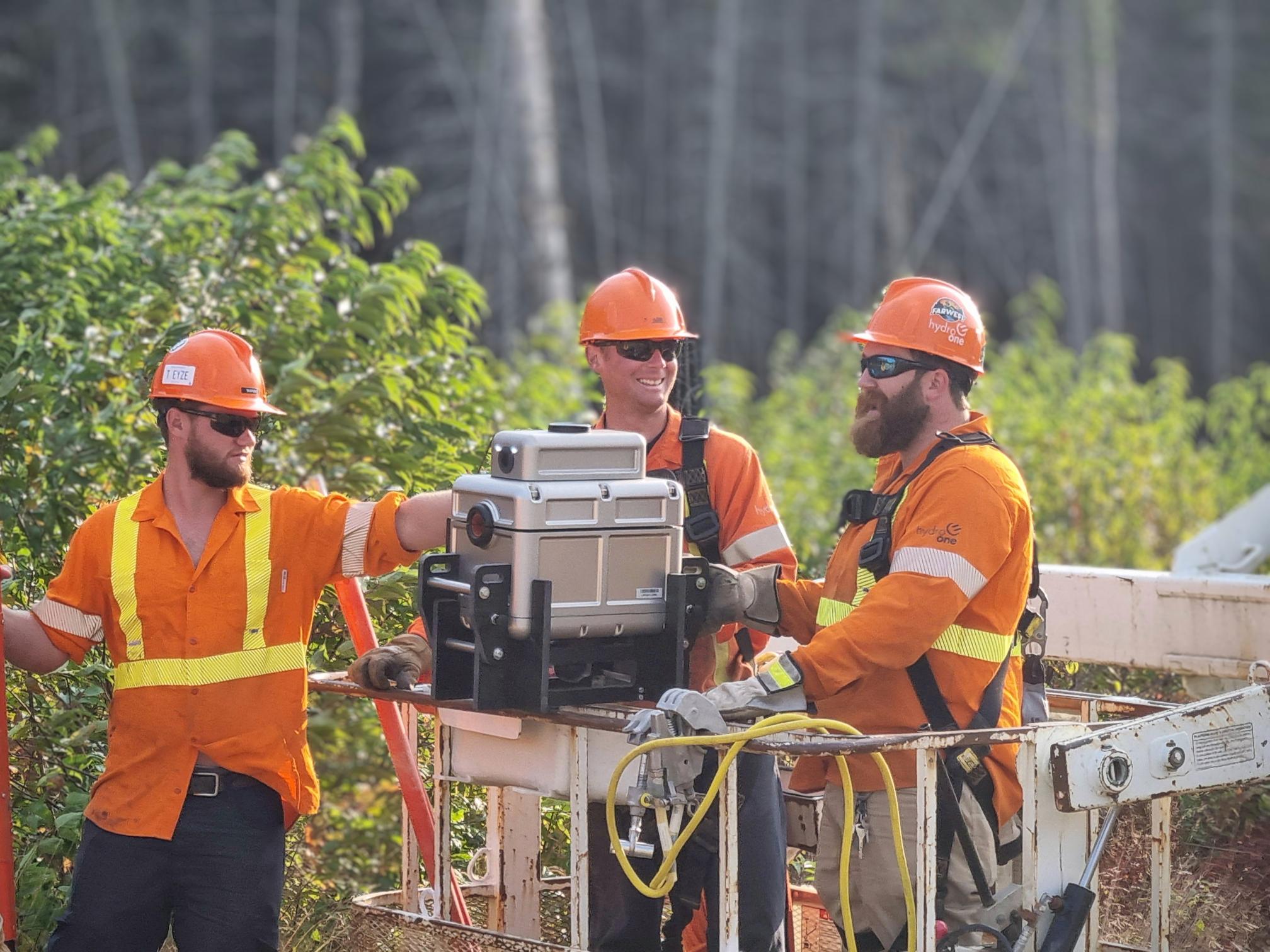LKX-MULTI
LKX-MULTI
Conducting autonomous monitoring of overhead lines under all conditions using Laki Power's patented power harvesting technology. Providing reliable images, data and video without the need for external power sources.
Starlink communication
LTE communication
High speed starlink communication
Ultrasonic wind sensor
4 way camera system
Line-powered with patented tech

Starlink communication
LTE communication
High speed starlink communication
Ultrasonic wind sensor
4 way camera system
Line-powered with patented tech

Starlink communication
LTE communication
High speed starlink communication
Ultrasonic wind sensor
4 way camera system
Line-powered with patented tech

Starlink communication
LTE communication
High speed starlink communication
Ultrasonic wind sensor
4 way camera system
Line-powered with patented tech

Edge AI for Faster, Smarter Detection
Instant insights with on-board AI
The LKX-MULTI uses integrated NVIDIA Jetson processors to analyze data directly on-board the station—enabling real-time detection of critical threats like wildfire smoke and ice buildup. With advanced AI at the edge, you get faster alerts and actionable insights without relying on remote servers or constant connectivity.

Smoke detected near tower 19!
With a 360°camera system and high bandwidth satellite, the LKX-MULTI can detect smoke in real-time. Providing critical visuals from the line itself.

Ice load are nearing critical threshold.
The LKX-MULTI detects ice load in real-time. Providing insights on ice thickness, line sag and weather parameters.

Unauthorized movement detected near pylon 37
A 4K camera system with ultra-low light visibility, provides clear visuals day and night around sensitive infrastructure.

Smoke detected near tower 19!
With a 360°camera system and high bandwidth satellite, the LKX-MULTI can detect smoke in real-time. Providing critical visuals from the line itself.

Ice load are nearing critical threshold.
The LKX-MULTI detects ice load in real-time. Providing insights on ice thickness, line sag and weather parameters.

Unauthorized movement detected near pylon 37
A 4K camera system with ultra-low light visibility, provides clear visuals day and night around sensitive infrastructure.

Smoke detected near tower 19!
With a 360°camera system and high bandwidth satellite, the LKX-MULTI can detect smoke in real-time. Providing critical visuals from the line itself.

Ice load are nearing critical threshold.
The LKX-MULTI detects ice load in real-time. Providing insights on ice thickness, line sag and weather parameters.

Unauthorized movement detected near pylon 37
A 4K camera system with ultra-low light visibility, provides clear visuals day and night around sensitive infrastructure.

Smoke detected near tower 19!
With a 360°camera system and high bandwidth satellite, the LKX-MULTI can detect smoke in real-time. Providing critical visuals from the line itself.

Ice load are nearing critical threshold.
The LKX-MULTI detects ice load in real-time. Providing insights on ice thickness, line sag and weather parameters.

Unauthorized movement detected near pylon 37
A 4K camera system with ultra-low light visibility, provides clear visuals day and night around sensitive infrastructure.
Plug and play
Fast, Simple Installation - Even by Drone
The LKX-MULTI is designed for quick deployment using standard bucket trucks or aerial drone installation, minimizing downtime and eliminating the need for costly infrastructure work. Get real-time insights up and running within hours.
Plug and play
Fast, Simple Installation - Even by Drone
The LKX-MULTI is designed for quick deployment using standard bucket trucks or aerial drone installation, minimizing downtime and eliminating the need for costly infrastructure work. Get real-time insights up and running within hours.
Plug and play
Fast, Simple Installation - Even by Drone
The LKX-MULTI is designed for quick deployment using standard bucket trucks or aerial drone installation, minimizing downtime and eliminating the need for costly infrastructure work. Get real-time insights up and running within hours.



The LKX-MULTI is installed with six bolts.



Two man crew installation via a bucket truck.
Engineered for Demanding Grid Environments
Rugged, Autonomous, and Built to Perform
The LKX-MULTI is a line-powered monitoring unit built to withstand extreme weather and environmental conditions. With autonomous operation, real-time data transmission via LTE or satellite, and on-board AI processing powered by NVIDIA Jetson, it delivers precise, actionable insights directly from the conductor—no external power or communication infrastructure required.
Engineered for Demanding Grid Environments
Rugged, Autonomous, and Built to Perform
The LKX-MULTI is a line-powered monitoring unit built to withstand extreme weather and environmental conditions. With autonomous operation, real-time data transmission via LTE or satellite, and on-board AI processing powered by NVIDIA Jetson, it delivers precise, actionable insights directly from the conductor—no external power or communication infrastructure required.
LKX-MULTI
Rugged, Autonomous, and Built to Perform
The LKX-MULTI is a line-powered monitoring unit built to withstand extreme weather and environmental conditions. With autonomous operation, real-time data transmission via LTE or satellite, and on-board AI processing powered by NVIDIA Jetson, it delivers precise, actionable insights directly from the conductor—no external power or communication infrastructure required.


Get the details
Download product sheet
Get our product sheet delivered straight to your inbox and discover how to optimize your grid.

Get the details
Download product sheet
Get our product sheet delivered straight to your inbox and discover how to optimize your grid.

Get the details
Download product sheet
Get our product sheet delivered straight to your inbox and discover how to optimize your grid.

Get the details
Download product sheet
Get our product sheet delivered straight to your inbox and discover how to optimize your grid.
